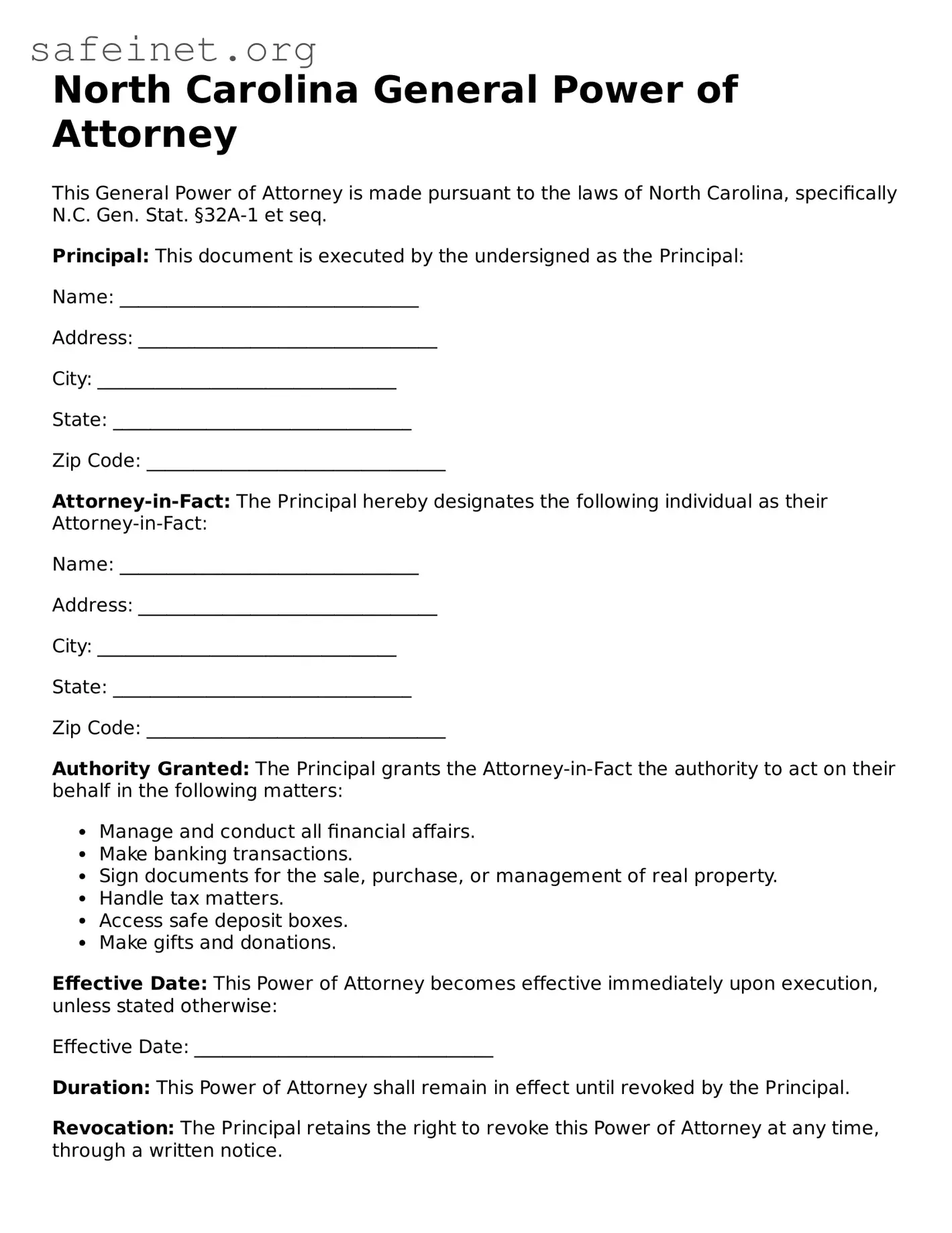North Carolina General Power of Attorney
This General Power of Attorney is made pursuant to the laws of North Carolina, specifically N.C. Gen. Stat. §32A-1 et seq.
Principal: This document is executed by the undersigned as the Principal:
Name: ________________________________
Address: ________________________________
City: ________________________________
State: ________________________________
Zip Code: ________________________________
Attorney-in-Fact: The Principal hereby designates the following individual as their Attorney-in-Fact:
Name: ________________________________
Address: ________________________________
City: ________________________________
State: ________________________________
Zip Code: ________________________________
Authority Granted: The Principal grants the Attorney-in-Fact the authority to act on their behalf in the following matters:
- Manage and conduct all financial affairs.
- Make banking transactions.
- Sign documents for the sale, purchase, or management of real property.
- Handle tax matters.
- Access safe deposit boxes.
- Make gifts and donations.
Effective Date: This Power of Attorney becomes effective immediately upon execution, unless stated otherwise:
Effective Date: ________________________________
Duration: This Power of Attorney shall remain in effect until revoked by the Principal.
Revocation: The Principal retains the right to revoke this Power of Attorney at any time, through a written notice.
Signature: By signing below, the Principal acknowledges their understanding of this document:
Signature of Principal: _________________________________________
Date: ________________________________
Witnesses: This document must be witnessed by at least one person who is not the Attorney-in-Fact:
Signature of Witness 1: _________________________________________
Name of Witness 1: _________________________________________
Date: ________________________________
Signature of Witness 2: _________________________________________
Name of Witness 2: _________________________________________
Date: ________________________________
Notary Public: This Power of Attorney may need to be notarized:
State of North Carolina
County of ________________________________
Subscribed and sworn to before me on this _____ day of ____________, 20__.
Signature of Notary Public: _________________________________________
My Commission Expires: ________________________________
